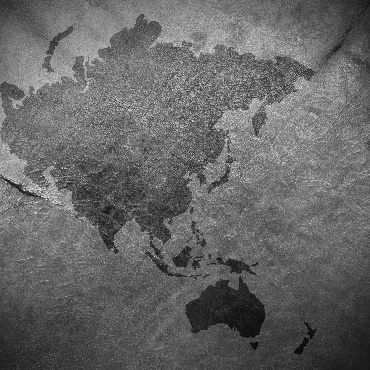U.S. CHALLENGES CHINA AT THE WORLD BANK, IMF
The White House's choice to lead the World Bank, Undersecretary of the Treasury David Malpass, wants to reduce and ultimately eliminate the institution's lending to China. Beijing was the bank's biggest borrower in 2017, making up $2.4 billion of its $13.3 billion in new financing that year. Malpass has said that loans to China violate the bank's mandate to lend to poor countries that are unable to borrow on the international market. While losing a few billion dollars is not a big deal for Beijing, stripping China of its designation as an emerging market directly challenges its self-designation as a developing country.
Malpass has also called for more transparency to the hundreds of billions that China is lending to developing countries via its Belt and Road Initiative (BRI). Late last year, Malpass said the murky loans leave fragile states with "excessive debt and low-quality projects" and they are likely turn to the IMF for relief. After binging on BRI infrastructure loans, Pakistan, for instance, is now negotiating an IMF financial bailout. The IMF's biggest funding source is the U.S. taxpayer and, according to Secretary of State Mike Pompeo: "There's no rationale for IMF dollars and associated with that, American dollars, that are part of the IMF funding, for those to go to bail out Chinese bondholders or China itself." (Washington Post, February 5, 2019)
U.S.-CHINA RELATIONS, #METOO TOP CHINA'S MOST CENSORED TOPICS
Of the roughly 1 million WeChat postings that the University of Hong Kong's WeChatscope research project reviewed in 2018, 11,000 were removed. The most censored WeChat topic in China in 2018 was U.S.-China relations – specifically, the trade dispute and accusations against ZTE and Huawei. The #MeToo hashtag was also heavily censored; specifically, coverage of the silencing of activists protesting a two-decades-old rape allegation against a former Peking University professor. Another top censored story were comments about the country's largest vaccine maker distributing substandard vaccines to thousands of babies. "Self-censorship is a common practice among internet users in China as online speech can easily bring them trouble. Users will often remove their own posts if they receive warning from senior colleagues or employers," said the report. WeChatscope used a web "scraping" system to track more than 4,000 public WeChat news accounts. China is now training censors in other countries, and exporting surveillance equipment to repressive regimes. (TIME, February 13, 2019)
MORE TROUBLE SIGNS FOR CHINA'S ECONOMY
In December, China had 65 million empty apartments, representing 21.4% of all housing in the country, according to a report by the Southwestern University of Finance and Economics in Chengdu. The proportion is up from 18.4% in 2011 and was driven by a rise in vacancies in second and third-tier cities. Sales volumes in 24 cities fell 44% in the first week of 2019 compared with last year, while China's four largest cities – Shanghai, Shenzhen, Guangzhou and Beijing – saw a 12% increase. Almost half of all bank loans are tied to vacant apartments. At the end of 2017, Chinese homeowners had 22.9 trillion yuan ($3.4 trillion) in mortgage debt, with 47.1% tied up in empty residences. About 80% of Chinese people's wealth is in real estate – that is, roughly $65 trillion, or about twice the size of all G-7 economies combined. On January 20, Professor Xiang Songzuo of Renmin University gave a speech in Shanghai warning of a real estate collapse this year. China "played around with leverage, debts, and finance, and eventually created a mirage in a desert that will soon entirely collapse," he said. Xiang also challenged the official 2018 GDP growth estimate of 6.6%, saying it was actually 1.67% or lower. Many property companies in China are deeply indebted; of 61 reviewed by Moody's Investors, 51 were deemed "junk" status. (Nikkei Asian Review, February 13, 2019)
NEW APP TO "STUDY XI" IS A HIT
The CPC has created and is promoting a Xi Jinping Thought app called "Xuexi Qiangguo" or "Study to Make China strong." The app's name is a pun, as the Chinese word for studying, Xuexi, can also be read as "Study Xi." The app, which has been downloaded 44 million times since its launch in January, tracks the amount of time users spend browsing Xi's inspirational quotes and watching videos of his speeches and travels. Users receive points for sharing articles or answering quizzes, which can be redeemed for gifts. Some say they felt pressured to download it, while others hope it will aid their careers. (Agence France Presse, February 21, 2019)
Want these sent to your inbox?
Subscribe


